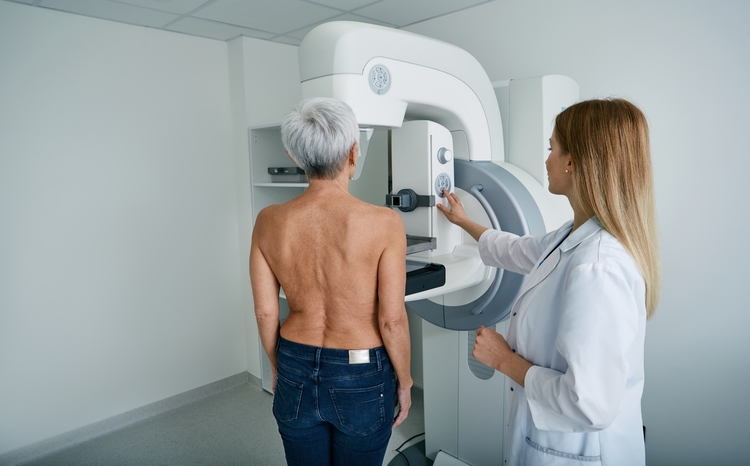Mobile health apps news in brief
- 26 June 2020

This month’s mobile apps news round-up features news that the majority of UK people believe their contact-tracing data will be used for other purposes and researchers at Northumbria University are looking at ways to use digital tools to help vulnerable people live independently.
84% of people surveyed believe contact-tracing data will be used for other purposes
Software company Okta surveyed 12,000 people globally, including 2,218 in the UK, to gauge peoples’ attitudes towards contact tracing.
It found 81% of UK citizens are aware of efforts to track Covid-19 through smartphone data collection.
Some 32% of respondents said they were more aware of data tracking efforts due to the pandemic and 84% were worried their data will be used for purposes unrelated to Covid-19.
Furthermore, 82% were worried their data would be stored incorrectly and 76% were concerned about sacrificing their privacy.
Jesper Frederiksen, vice president at Okta, said: ““Ignorance can be bliss, but in reality, personal information is being collected from all directions.
“Regulations like GDPR attempt to give people some control over their data, but it can be challenging to understand what our digital identities consist of, how they are used and what kind of data is collected.”
Despite concerns, people in the UK were generally willing to hand over their data to help stop the spread of the virus, the survey found.
Some 60% of UK respondents said they would be comfortable in providing location data to help the cause, with this figure much lower in countries such as the Netherlands (45%), Germany (47%), the US (48%) and Australia (49%).
“It’s great to see that despite privacy concerns, UK citizens are willing to provide their data in order to aid containment of Covid-19. However, it’s important that this trust is not abused,” Frederiksen added.
“Those collecting this data need to ensure they restrict who can access it and what it is used for.”
Medical app company Ada named Technology Pioneer by World Economic Forum
Ada has been named a Technology Pioneer by the World Economic Forum.
The Technology Pioneers are early to growth-stage companies from around the world that are involved in the design, development and deployment of new technologies and innovations, and are poised to have a significant impact on business and society.
Technology Pioneers community is an integral part of the larger Global Innovators community of start-ups at the World Economic Forum.
It will allow Ada to participate in World Economic Forum activities, working with policymakers and private sector leaders to help define the global agenda on key issues.
Daniel Nathrath, chief executive of Ada, said: “It’s an honour to be recognised by the World Economic Forum and join this diverse group of industry leaders in tackling our most pressing global challenges.
“The team at Ada is dedicated to using our technology and expertise to support better health outcomes for all. Healthcare is undergoing a massive transformation, and we look forward to contributing to the forum dialogue on how innovation can enable a future where everyone has access to the healthcare they need.”
Northumbria University tests digital technologies to help vulnerable people stay independent
Researchers at Northumbria University are testing and developing a range of smart digital technologies to help some of the most vulnerable people in society live more independently.
Tools including virtual assistants, sensors, apps and off-the-shelf smart devices, such as Amazon Alexa and Google Home, are being tested as part of a ‘living lab’ and bringing together researchers from across faculties at the university.
The lab at Gateshead Innovation is the base for a 12-month research project examining how various digital technologies can assist vulnerable people in different ways.
These include home automation, prompts and reminders about their everyday activities, developing and maintaining their skills, and even monitoring their day-to-day behaviour.
The project will look to assist older people, those with mental health needs, and people with learning disabilities and autism spectrum disorder.
Glenda Cook, professor of nursing at Northumbria University, who leads the project from a health care perspective, said: “Incredible social impact can be achieved through use of digital technologies that are becoming widely available to everyone and can support independence and improve quality of life.”
Professor Lars Erik Holmquist, from the university’s school of design, added: “We have devised a way in which the devices can communicate with each other; for example, if it’s getting dark a sensor will pick this up and a voice on another device will say would you like the lights turned on?
“This opens the ‘black box’ of the smart home and makes it much more user-friendly.”
Downloads of medical apps up 60% in April 2020
Mobile data and analytics platform App Annie published the growth in monthly downloads of medical apps during the Covid-19 pandemic.
The UK saw an acceleration of 60% in downloads among medical apps in April 2020 compared to January 2020, demonstrating an increased reliance and escalation of consumer trust in these apps for handling tasks traditionally fulfilled face-to-face, the company said.
The top 10 free telehealth apps were also revealed, with the official NHS App coming in at number one, followed by Covid Symptom Study, MDacne, Prime Sleep Recorder, Patient Access, myGP, Pregnancy+, Well Repeat NHS Prescriptions, Echo – NHS Prescriptions and NHS24 Covid-19.




